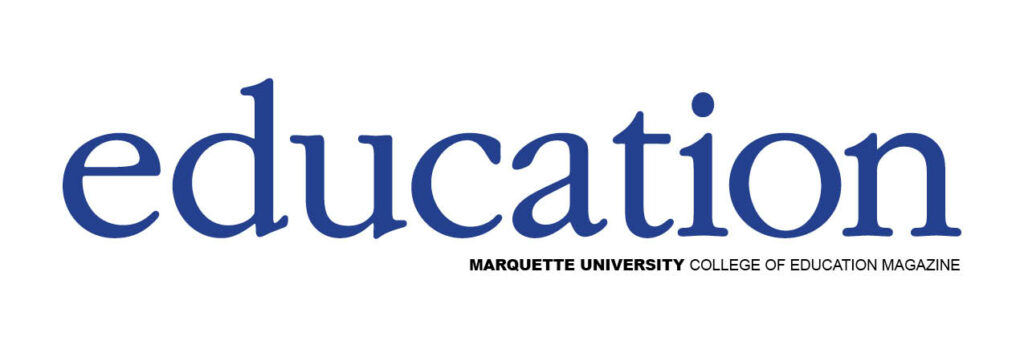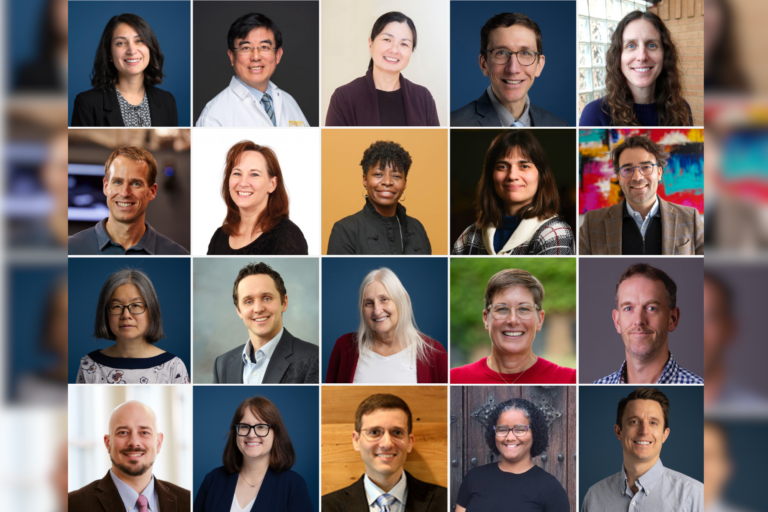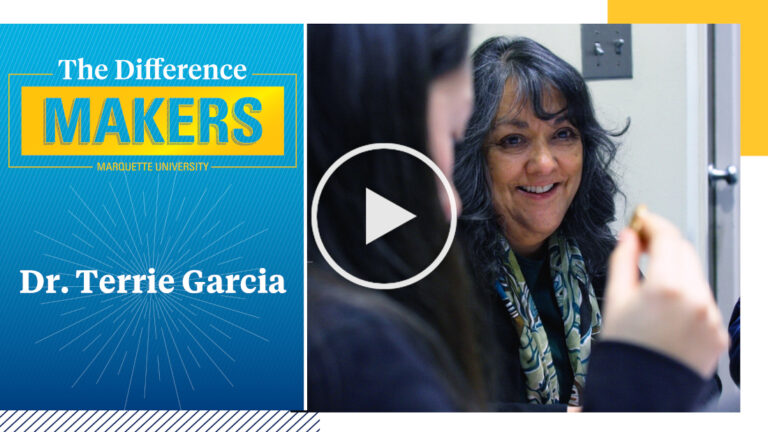New online counseling program hopes to combat the mental health provider shortage in high-need areas by offering students another route to earn their degree.
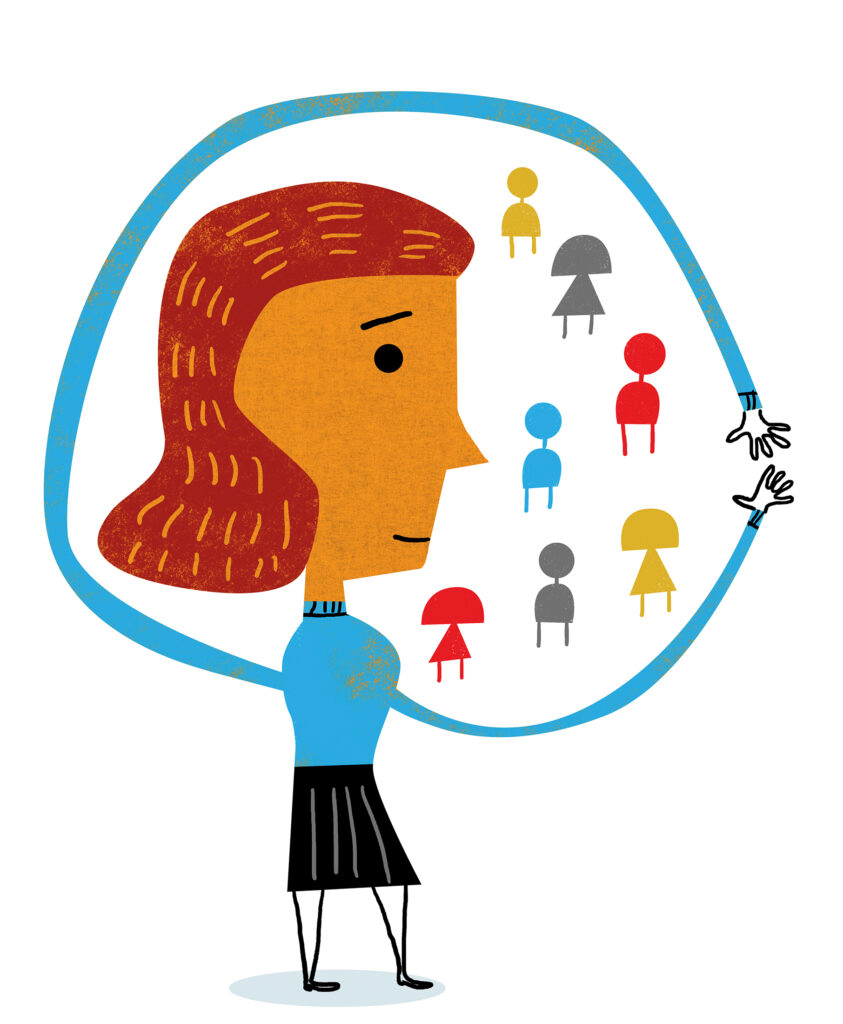
By Hal Conick
In many areas of the U.S., people don’t have access to adequate mental health care, and increasing patient needs during the coronavirus pandemic are pressuring an already-taxed practitioner corps, according to the American Psychological Association.
While Wisconsin fares better than most states, USAFacts.org reports that 37 percent of the state’s population lives in an area with a shortage of mental health professionals. Northern and western parts of Wisconsin, in particular, have a dearth of mental health counselors, according to Dr. Alan Burkard, professor and chair of counselor education and counseling psychology.
Other states fare worse — 66 percent of Indiana lives in an area with a shortage, for example, while nearly 75 percent of Kentucky residents live in an underserved area.
To help reduce this shortage, Marquette launched an online version of its Clinical Mental Health Counseling graduate program this fall. Burkard hopes this program can help prepare students to serve areas with a paucity of mental health professionals.
The program, save for the fact that students can obtain their degrees entirely remotely, has the same structure as the extant on-campus program, which means Marquette will provide resources to students to help them identify appropriate, meaningful clinical placement sites in their region.
Graduates of the Clinical Mental Health Counseling online program will also serve needs that go beyond rural areas. For example, Burkard says there’s a need for counselors who can work with children and adolescents, which is a specialty the program offers. He regularly speaks with officials at Children’s Wisconsin, who tell him that there’s a significant waiting list for children who need access to mental health services.
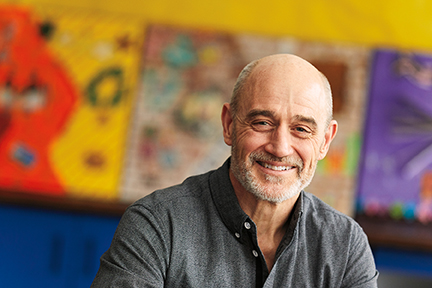
“We’re in conversation with Children’s Wisconsin and working with them to potentially realize practicum and internship placements,” Burkard says. “This with the thought that many of these clinicians we train might eventually go into their clinics and become full-time staff at some point.”
Sarah Whitehouse, in her first year of the online program, is one such student who will go on to help children. Whitehouse couldn’t find a counseling program that would allow her to continue working as a music therapist as she studied, which she needed to do to stay afloat financially.
“When I found Marquette’s program, it was the absolute perfect fit for me,” Whitehouse says. “Especially with a specialization in child and adolescent counseling, which I’m pursuing.”
After graduating, Whitehouse plans to open her own practice in either Indiana or Ohio. She’ll work as both a mental health counselor and a music therapist for children and young adults with autism.
Surpassing expectations
For the fall semester, 42 students enrolled in the program, which surpassed the department’s expectations. And expectations remain high.
Megan DeRaleau, a project specialist for the Graduate School who has worked on enrollment marketing for the program, believes that the program will see similar enrollment numbers this spring and summer. She says many students mentioned that they became interested in the program because it’s run by Marquette, which carries a stronger reputation than many other remote programs.
While the classes and requirements of the online program are the same as what in-person students get, it attracts demographically different students. According to DeRaleau, 31 percent of the students in the online program are from outside of Wisconsin — including states such as Washington, Oregon, Georgia and Tennessee. All of these states will serve the program’s goal of reducing the shortage of mental health professionals, as each has about 40 percent of its population living in areas with a shortage.
Students in the online program also trend older than those who enroll for on-campus courses. The average age of students in the online graduate program is 33, while the average age of students who take the program on campus is 23.
“These are students who are a little bit older and have some life experience, even professional experience in other areas,” Burkard says. “They’re often making a change in career because they want to help people.”
Whitehouse says she’s enjoyed the flexibility of the program, as it allows her to balance her work with her classes. She also feels that the program has done a good job making remote students feel included in the Marquette community. “They’ve been incredible at communicating with us and also trying to keep us involved in what’s happening on campus,” she says.
Students who graduate will have a great market for their skill set, Burkard says. The Bureau of Labor Statistics predicts that the job outlook for mental health counselors will grow by 23 percent between 2020 and 2030, much faster than the average job.
“There are plenty of opportunities out there; it’s more a matter of getting these students to the point where they’re ready to take those positions,” Burkard says. “This program was intended to meet the mental health needs that are being expressed in this country. We see that need even more so with COVID right now. There are a lot of distressed people as a result of the pandemic.”
Burkard says that he’s been satisfied to see the program grow, both online and on campus, and that Marquette has supported the growth with additional faculty hires.
“The most satisfying part is seeing students come into the program, feeling excited about what they’re learning,” Burkard says. “Knowing that they’re going to go out and serve populations that, right now, aren’t getting services is pretty satisfying. As a faculty, we couldn’t be more excited about that idea.”

